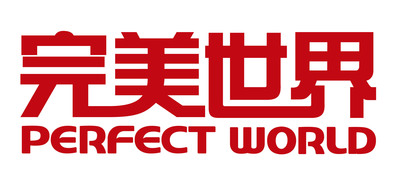Perfect World’s Shanda Buy: Consolidation Coming?

The online game industry has just gotten a small hint of potential consolidation, with word that mid-sized player Perfect World (Nasdaq: PWRD) is buying a stake of rival Shanda Games (Nasdaq: GAME), which is in the process of privatizing. The tie-up that will see Perfect World buy about 6 percent of Shanda Games’ shares comes as both companies confront sagging profits, and could kick off a period of consolidation for the highly fragmented industry. I’ve incorrectly predicted such consolidation before, but a recent wave of M&A in China’s Internet and other recent trends could mean that such an overhaul could finally be coming to online games.
China’s online gaming space has been dominated by Tencent (HKEx: 700) and NetEase (Nasdaq: NTES) for the last 5 years, as the pair emerged from a crowded field by banking on their strengths in social networking and own-game development. The remaining players like Shanda Games and Perfect World continue to make profits, though their bottom line growth has slowed to single digits or even started to contract.
That status quo has existed for several years now, but a new element coming into the mix is mobile games that are quickly overtaking traditional desktop titles. That shift has seen the rise of new companies like Sungy Mobile (Nasdaq: GOMO), which made a New York IPO late last year, and Chukong, which is set to make an IPO later this week. Chukong is typical of the mobile sector’s explosive growth, reporting last week that its revenue surged more than 7-fold last year to 555 million yuan ($90 million) as more and more Chinese gamers play over their cellphones. (previous post)
Against that backdrop, perhaps this new strategic tie-up between Perfect World and Shanda Games, 2 of the industry’s earliest players, isn’t too surprising. Under the deal, Perfect World will pay $100 million for just over 30 million Shanda Games ordinary shares, equaling about 15 million of its US-traded American Depositary Shares (ADSs). (company announcement) A consortium that included Shanda’s parent in January announced a plan to privatize Shanda Games for $6.90 per ADS.
Some quick math will show that Perfect World is buying the stake for about $6.60 per ADS, meaning Shanda is selling the shares at a 4 percent discount to the earlier buy-out offer price. Shanda Games previously said the January buy-out offer would value the company at $1.9 billion, meaning that Perfect World will get just under 6 percent of the company in this latest tie-up.
As I’ve said above, neither Shanda Games nor Perfect World is very exciting from an investor’s perspective due to their anemic profit growth. Shanda Games saw its profit and revenue both decline in the fourth quarter. Perfect World posted stronger revenue growth of more than 30 percent for the period, but its operating profit tumbled by nearly two-thirds. At the same time, Shanda’s founder Chen Tianqiao has made recent signals that he might want to sell his empire, which includes not only Shanda Games but also online literature, video and cloud computing units. (previous post)
Given all these latest signals and industry trends, this latest stake sale looks like a prelude to a potential outright sale of Shanda Games to Perfect World if the 2 companies find they can work well together. Such a sale would create an interesting new player with about 2 billion yuan in quarterly revenue, or roughly comparable to NetEase’s gaming revenue in its most recent reporting quarter.
Such a move would put pressure on other smaller names to find their own partners, including companies like Giant Interactive (NYSE: GA) and The9 (Nasdaq: NCTY). I know I’ve been wrong with my previous predictions, but this latest Shanda-Perfect World tie-up is leading me to forecast once again that the much-needed sector consolidation may be finally coming, and we could see 2 or 3 relatively large mergers by the end of this year.
Bottom line: Perfect World’s purchase of a strategic stake in Shanda Games could kick off a much-needed round of consolidation for second-tier online game companies, with 2-3 major deals likely this year.
Related posts:
